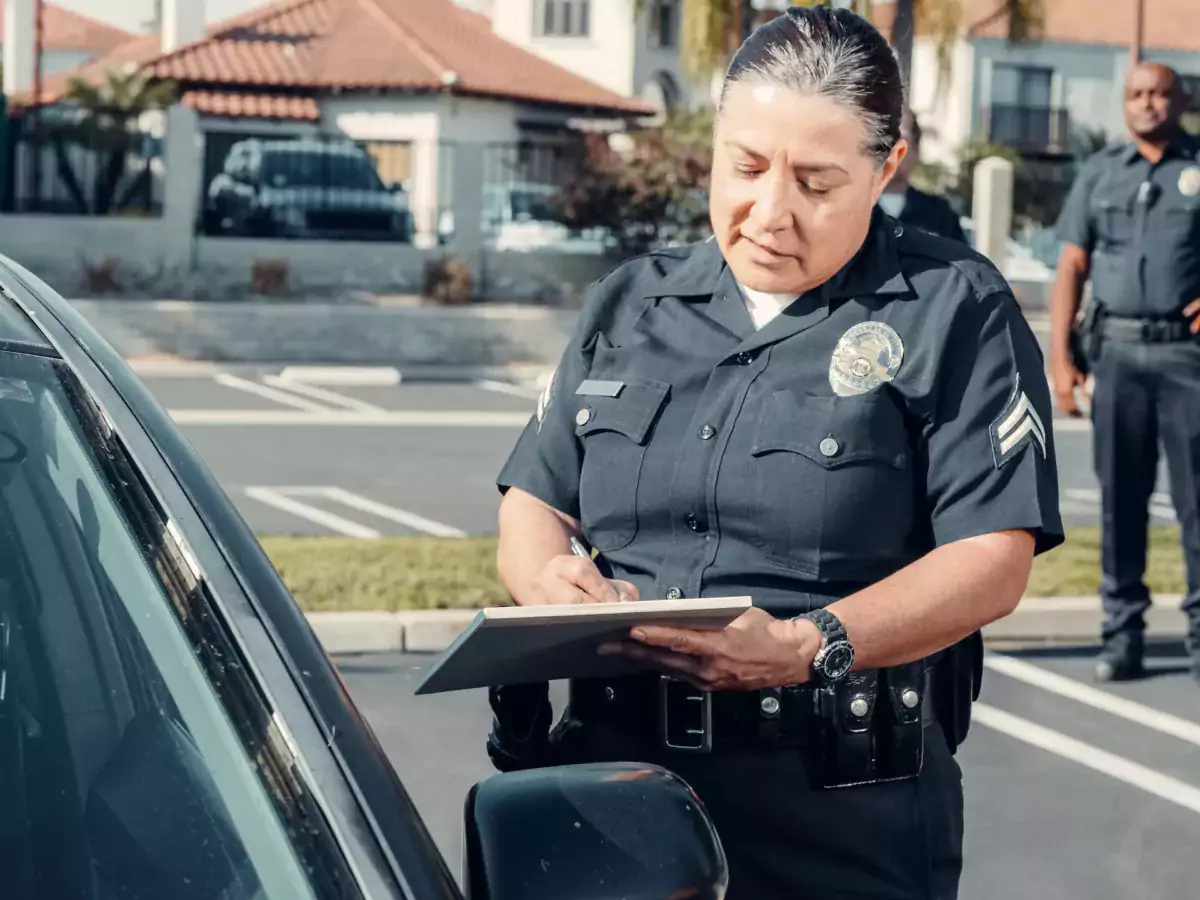Newsletter
It’s Long Past Time to Ban Pretextual Stops—Take It From a Public Defender
Police pretextual stops, in which traffic police pull people over as an excuse to search them, should no longer be allowed.


It’s Long Past Time to Ban Pretextual Stops—Take It From a Public Defender
by Dan Eichinger
This piece was published in coordination with Zealous, an organization working to challenge injustice through media, storytelling, and the arts.
Dante, a man I represented as a public defender, didn’t expect to be pulled over as he and his friend, Kris, drove through Pittsburgh to play basketball at a park a handful of years ago. But as Kris rounded a bend, four undercover detectives jumped out from the side of the road and ordered Kris to stop. Kris kept two pistols in his car, which he legally purchased and had a license to carry.
While the detectives claimed that they stopped Kris’s car due to an expired inspection sticker, this was no ordinary traffic stop. In truth, these detectives wanted an excuse to pull over two young Black men, search them, and rifle through their car. Once the detectives noticed the pistols – one of which had slipped to the passenger’s side floorboard when Kris stopped short – they ordered both men out of the car at gunpoint.
The detectives searched Kris and Dante before handcuffing them and forcing them to sit on the curb. Although the officers confirmed that Kris legally owned both pistols and had no evidence—besides proximity—that Dante possessed the gun, the police arrested Dante anyway. Dante couldn’t legally possess a firearm due to the juvenile equivalent of a criminal conviction years earlier—and the detectives claimed that simply being near two legally purchased firearms was enough evidence to arrest him. Dante was charged with felony gun possession, jeopardizing his job, education, and livelihood.
This type of ugly scenario plays out thousands of times nationwide every day. This policing tactic is commonly known as a “pretextual” traffic stop, in which officers stop motorists for minor traffic violations in the hopes of turning up evidence of other potential crimes. According to multiple studies, these stops rarely turn up anything illegal and often fail to reduce crime Instead, they mostly inflict trauma and violence, both physical and emotional.
Despite these facts, the Supreme Court has ruled that pretextual stops are legal, provided an officer identifies an actual traffic violation.
As a public defender in Pittsburgh for over 10 years, I represented hundreds of clients like Dante, most of them Black, who were arrested following unnecessary police-initiated encounters. I also saw how these intrusive practices contribute to the mass criminalization of Black people. Pretextual stops have a disastrous effect on Black and brown communities, which are targeted at vastly higher rates than those of any other demographic.
Pretextual stops often create situations in which police officers kill Black people. In the moments before Tyré Nichols, Philando Castile, and Daunte Wright were murdered by police, for example, officers pulled their vehicles over for alleged minor traffic violations when an ulterior motive was apparent: a desire to investigate other potential criminal activity based on nothing more than a neighborhood and a profile.
Even when everything goes as “well” for the motorist – no arrest or charges – the experience often inflicts significant emotional and psychological damage.
In Dante’s case, body camera footage disproved the detective’s claims that my client had possessed any guns. Thankfully, I convinced a judge to dismiss the charges. While Dante was spared the crippling consequences of a felony conviction and a jail sentence, he nonetheless experienced the trauma of the police encounter and arrest. Not only was he held at gunpoint, handcuffed, and jailed pretrial, but he waited in limbo with felony charges hanging over his head for months until his case was dismissed. Targets of pretextual stops who are convicted face a lifetime of educational, housing, and employment discrimination.
The only way to mitigate the consequences of pretextual stops is to ban the practice altogether. While few jurisdictions have completely banned pretextual stops, those that have done so, such as Fayetteville, North Carolina, saw a significant reduction in the number of Black people who were stopped and searched without any corresponding effect on crime rates. Incremental measures –like local legislation to curb pretextual stops or policies not to charge certain cases arising from these encounters—still leave officers with too much discretion.
Instead, we must demand that our local officials recognize the disastrous effects of the underlying police practices themselves. These practices allow officers to police intrusively, aggressively, and with impunity. If police departments refuse to end this practice, local leaders need to appoint police chiefs who will—or suffer electoral consequences.
Incremental changes are simply Band-Aids that will not alleviate the ailments of the criminal legal system. We must instead eradicate pretextual stops entirely. On that summer day a few years ago, Dante should have just been able to play basketball.
ICYMI — From The Appeal
We couldn’t be prouder of our contributing editor Christopher Blackwell for winning INN’s Breaking Barriers Award. He inspires us to keep doing this work, and we’re fortunate to be able to call him a colleague. If you haven’t already, check out his incredible work!
Los Angeles city council members voted 12-3 to give another $1 billion to police as part of a new union contract. The LAPD says it needs raises to hire more officers, but crime is falling even as police staffing has reached its lowest number in decades.
A Florida prison refused to deliver a local newspaper to an incarcerated subscriber, claiming that a puzzle game in the publication “may be used to create coded messages indecipherable by staff.” The game appears next to Sudoku and the horoscopes.
A New Jersey law eliminated public defender fees for people in state courts, but people tried in municipal courts—which tend to handle less severe offenses—can still incur fees just for applying for court-appointed counsel.
In the news
A Houston Chronicle investigation revealed that high-speed police chases launched by the Houston Police Department increased 47 percent over a five-year period, and killed dozens of people and injured hundreds. [Andrea Ball And Caroline Ghisolfi / Houston Chronicle]
As wildfires become more commonplace, Appeal contributor Christopher Blackwell explores the question: “What happens if the prison I am locked inside of becomes consumed in flames?” [Christopher Blackwell / The Nation]
A new North Carolina law will mean more children can be tried as adults. [WRAL / Laura Leslie]
A Jersey City, New Jersey, family says they feared their loved one, who lived with mental illness, would harm himself and called a local crisis center for help. The police arrived and shot and killed him. [Magee Hickey and Jonathan Rizk / PIX 11]
An investigation by The Associated Press found that at least 14 of the 20 most populous U.S. cities are hosting or starting non-police response teams to respond to mental health crises. [Jennifer Peltz And Jesse Bedayn / Associated Press]
Dozens of Cop City protesters are facing domestic terrorism or other felony charges. Since their arrests, they have lost jobs, been barred from school, and had to post online fundraisers for housing and mental health help. [Timothy Pratt / The Guardian] From The Appeal: Behind Georgia’s Authoritarian Crackdown On ‘Stop Cop City’ Protests
That’s all for this week. As always, feel free to leave us some feedback, and if you want to invest in the future of The Appeal, donate here.
